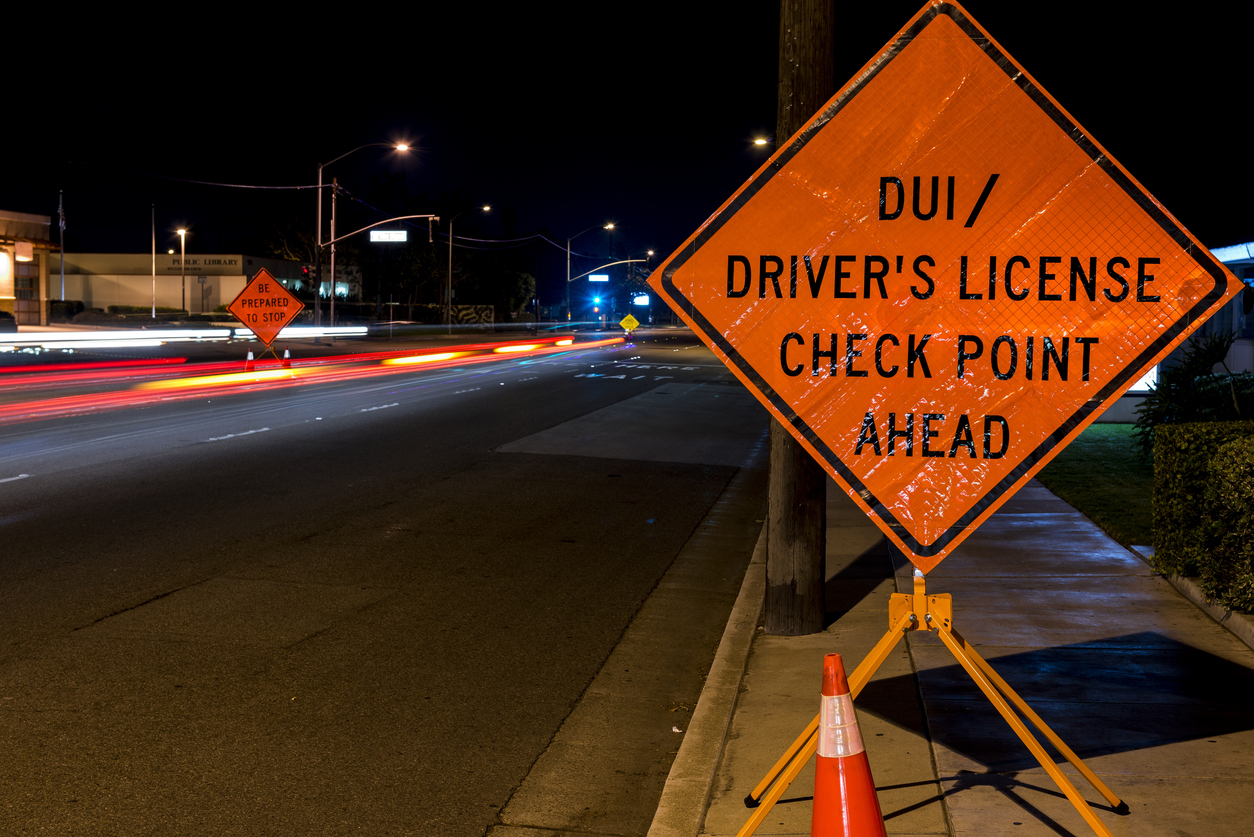What to Know About DUI Checkpoints in Clearwater, Florida
Perenich, Caulfield, Avril & Noyes Personal Injury Lawyers | DUI

In Florida, driving under the influence (DUI) is the cause of thousands of car accidents and injuries each year. To combat this problem and enforce Florida’s DUI laws, law enforcement officials across the state use tactics, including DUI checkpoints.
A DUI stop, sometimes known as a sobriety checkpoint, is a roadblock set up temporarily to check for drivers under the influence of alcohol or drugs. If you have questions about the DUI checkpoint process in the Clearwater, Florida, area, a Clearwater car accident attorney can help provide answers.
How Does a DUI Checkpoint Work?
At most DUI checkpoints, police officers will be positioned near a barricade that blocks a section of road. The barricade might involve signs, flashing lights, safety beacons, or even emergency lights from the officers’ vehicles. The goal is to slow drivers down and funnel them through the checkpoint to be met individually. While DUI checkpoints are often staged at holidays such as New Year’s Eve or the Fourth of July, they can be conducted at any time, on any day.
Officers at the checkpoint will ask for a driver’s license, registration, and proof of insurance. They will also check drivers for indications of drug or alcohol use. Some signs include slurred speech, glossy eyes, impaired body function, and the simple smell of alcohol coming from a driver. If a driver shows signs of impairment by alcohol or drugs, they can be asked to perform field sobriety tests (FSTs), use a breathalyzer test, or consent to a search of their vehicle.
Are DUI Checkpoints Legal in Florida?
Florida is among the states where DUI checkpoints are legal. While they pose an inconvenience to drivers, DUI checkpoints are a useful tool to enforce Florida DUI laws and prevent catastrophic accidents.
Since DUI checkpoints are legal in Clearwater, you cannot simply turn around or perform an illegal maneuver to avoid them. Refusing to pass through a DUI checkpoint can lead to serious consequences, including criminal charges for evading law enforcement. However, a driver may take a side street or detour if done well in advance of the barricade, and this can be done without violating any traffic laws.
Even though you will be required to stop at a checkpoint, you still retain important legal rights during the process. Florida drivers still have the right to remain silent and not give incriminating answers to questions at a DUI checkpoint. Officers can ask to see your license and registration, but they still would need probable cause or consent to search your vehicle.
Limitations on Clearwater DUI Checkpoints
Law enforcement does not have an unlimited right to set up DUI checkpoints when and wherever they please. Checkpoints can potentially run afoul of Fourth Amendment protections against improper search and seizure.
For these reasons, key limitations usually exist for DUI checkpoints, such as:
- Public notice of potential checkpoints. Law enforcement cannot set up a “surprise” checkpoint without notification in advance. There must be public notice of when and where a DUI checkpoint will be set up when planned.
- The checkpoint must be easily visible. A checkpoint must have sufficient lighting and signage to advise drivers of an impending checkpoint. Police vehicles must be identifiable and marked clearly as well. In addition to safety reasons, high visibility of a DUI checkpoint allows drivers sufficient time to slow down and stop.
- Officers cannot “profile” vehicles. Officers do not have to stop and question each driver who passes through a checkpoint. They have discretion in choosing which cars to let through and which to stop. However, they cannot stop drivers based on their race, sex, or other personal features. If they use a random pattern to choose which drivers to stop, any deviation from the pattern must be supported by reasonable suspicion or probable cause.
- Contact with drivers must be limited. Officers cannot unnecessarily keep drivers stopped for longer than needed to ask essential questions. If they don’t see signs of impairment by drugs or alcohol or any other legal reason to extend the stop, they must let the driver through.
- Drivers do not need to answer questions. Aside from identifying themselves and providing documentation of registration and insurance, drivers do not need to answer other questions from the officer. Drivers might feel compelled to talk due to the somewhat custodial nature of a roadblock, but they are within their legal rights to remain silent at a DUI checkpoint.
Contact the Clearwater Car Accident Law Firm Of Perenich, Caulfield, Avril & Noyes Personal Injury Lawyers to Learn More About DUI Checkpoints
DUI checkpoints play an important role in driver safety in the Clearwater, Florida area. If you have questions about your rights at a DUI checkpoint in Clearwater, Florida, contact an experienced attorney to discuss your legal rights and options.
For more information, please contact the Clearwater and St. Petersburg car accident law firm of Perenich, Caulfield, Avril & Noyes Personal Injury Lawyers at the nearest location to schedule a free consultation today.
We serve in Pinellas County and its surrounding areas:
Perenich, Caulfield, Avril & Noyes Personal Injury Lawyers – Clearwater
1875 N Belcher Rd. STE 201,
Clearwater, FL 33765,
United States
(727) 796-8282
Perenich, Caulfield, Avril & Noyes Personal Injury Lawyers – St. Petersburg
2560 1st Ave S,
St. Petersburg, FL 33712,
United States
(727) 349-1728
